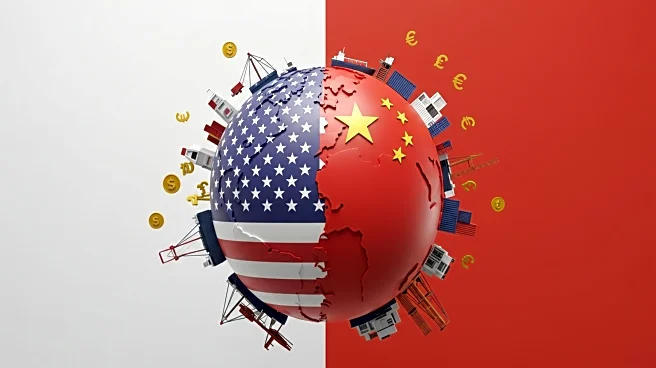What's Happening?
The global trading system is under scrutiny as the U.S. and China continue to operate by their own rules, challenging the multilateral framework established by the World Trade Organization (WTO). Former U.S. trade representative Michael Froman highlights that the U.S. and China are undermining the WTO by imposing tariffs and ignoring dispute settlement mechanisms. This has raised concerns about the future of the rules-based trading system, as smaller countries rely on the WTO for protection and a level playing field.
Why It's Important?
The actions of the U.S. and China could lead to a fragmented global trading system, affecting international trade relations and economic stability. Smaller countries, which depend on the WTO for fair trade practices, may face increased challenges if the current system collapses. The shift towards unilateral and bilateral agreements could result in a less predictable trade environment, impacting global supply chains and economic growth. The situation underscores the need for new strategies to manage international trade in a rapidly changing geopolitical landscape.
What's Next?
Countries may begin to form new trade alliances and agreements outside the WTO framework, potentially leading to a more fragmented global trade system. The U.S. and China may continue to pursue their own trade policies, prompting other nations to adapt to this new reality. The future of global trade will likely involve a mix of multilateral, bilateral, and regional agreements, as countries seek to protect their economic interests in an increasingly complex environment.
Beyond the Headlines
The current trade tensions highlight the limitations of the WTO and the challenges of maintaining a cohesive global trade system. The situation raises questions about the effectiveness of existing international institutions and the need for reform to address the evolving dynamics of global trade. The potential shift towards a more fragmented system could have long-term implications for global economic governance and the balance of power among major economies.











